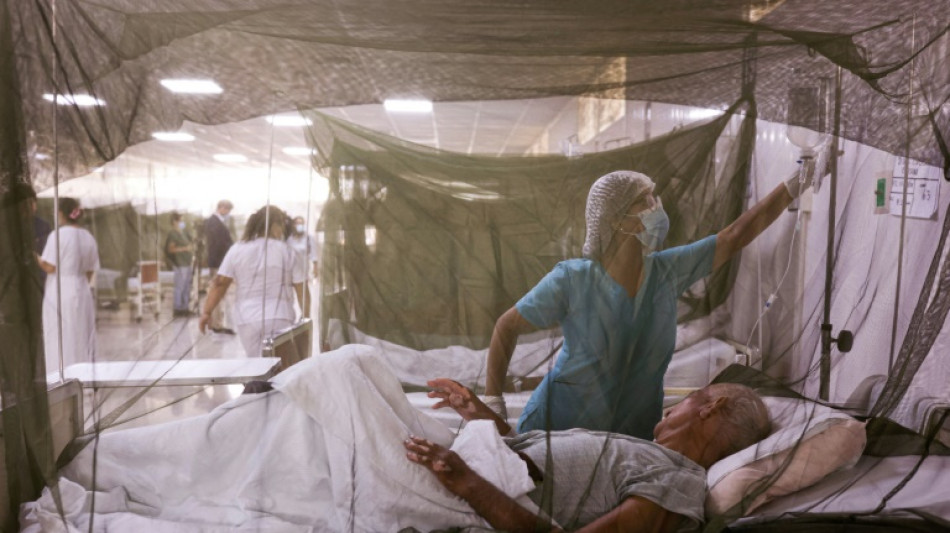
-
 Nasdaq and gold hit record highs
Nasdaq and gold hit record highs
-
Youth movement: NBA's 20-something stars set to battle in conference finals

-
 Top-ranked golfer Scheffler's court date postponed until June
Top-ranked golfer Scheffler's court date postponed until June
-
Brazil mayor's mammoth task: rebuild from floods, prevent more
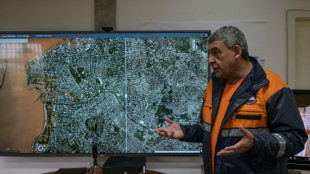
-
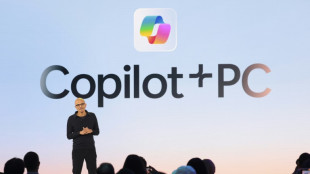 Microsoft unveils 'AI-ready' PCs
Microsoft unveils 'AI-ready' PCs
-
Trump trial prosecution rests, closing arguments next week
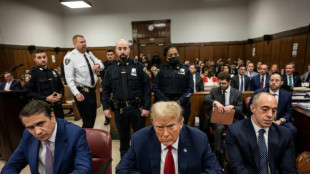
-
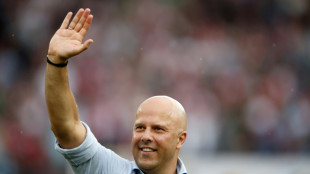 New Liverpool boss Slot admits he could not resist lure of club
New Liverpool boss Slot admits he could not resist lure of club
-
OpenAI to 'pause' voice linked to Scarlett Johansson

-
 Women's tennis signs 'multi-year partnership' with Saudi investment fund
Women's tennis signs 'multi-year partnership' with Saudi investment fund
-
Two policemen killed as Colombia rebels launch gun, bomb attacks
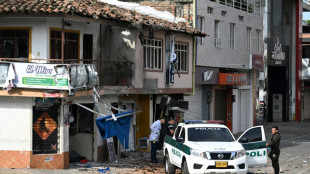
-
 Murray on the brink in Geneva comeback
Murray on the brink in Geneva comeback
-
ICC prosecutor seeks Gaza 'war crimes' arrest warrant for Netanyahu, Hamas leaders
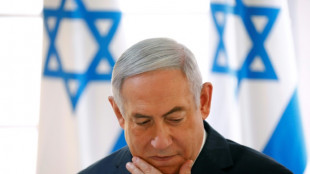
-
 'Incognito Market' founder arrested in New York
'Incognito Market' founder arrested in New York
-
Cate Blanchett urges film industry to include refugee voices

-
 Sargent returns to US squad for pre-COPA friendlies
Sargent returns to US squad for pre-COPA friendlies
-
Microsoft unveils 'Copilot Plus' PC amped with AI

-
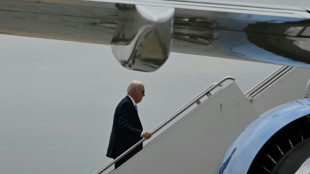 Biden slams 'outrageous' ICC bid to arrest Israeli leaders
Biden slams 'outrageous' ICC bid to arrest Israeli leaders
-
Five things to know about incoming Anfield boss Arne Slot

-
 Changing climate influences London's Chelsea Flower Show
Changing climate influences London's Chelsea Flower Show
-
UK PM sorry for institutional cover-up in infected blood scandal
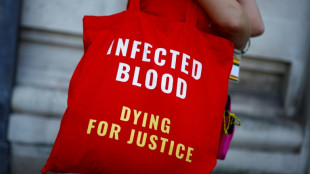
-
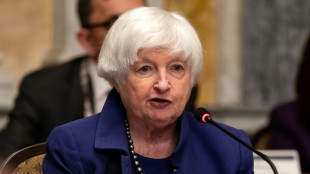 G7 push to use Russian assets for Ukraine 'vital and urgent': Yellen
G7 push to use Russian assets for Ukraine 'vital and urgent': Yellen
-
Trump trial closing arguments set for next week
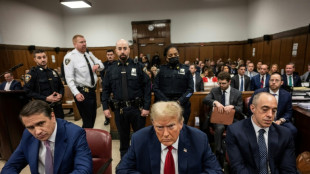
-
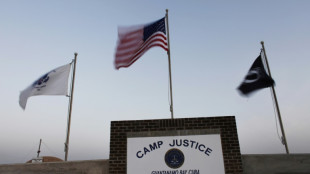 US Supreme Court rejects ex-Guantanamo detainee's appeal
US Supreme Court rejects ex-Guantanamo detainee's appeal
-
Japan's Studio Ghibli receives honorary Palme d'Or in Cannes
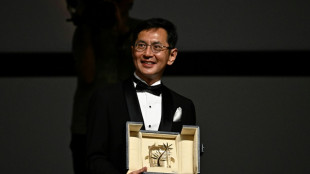
-
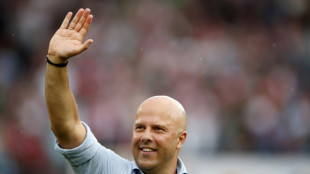 Liverpool confirm Slot will replace Klopp as manager
Liverpool confirm Slot will replace Klopp as manager
-
Pogacar 'good enough' to win Giro d'Italia and Tour de France

-
 Cargo ship that destroyed Baltimore bridge towed to port
Cargo ship that destroyed Baltimore bridge towed to port
-
'God works slowly': NGO ship rescues 35 Bangladeshis off Malta
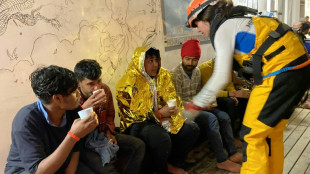
-
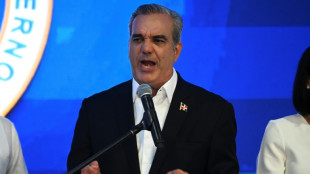 Dominican Republic's President Abinader wins resounding re-election
Dominican Republic's President Abinader wins resounding re-election
-
England relish 'fear factor' of returning paceman Archer

-
 Israel, Hamas reject bid before ICC to arrest leaders for war crimes
Israel, Hamas reject bid before ICC to arrest leaders for war crimes
-
Explosive Trump biopic hits Cannes Film Festival

-
 Demi Moore transforms for Cannes body horror 'The Substance'
Demi Moore transforms for Cannes body horror 'The Substance'
-
Spain demands Milei public apology for 'corrupt wife' comment
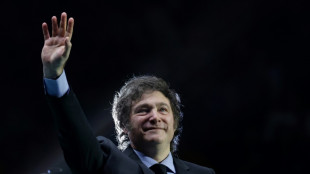
-
 Gold hits record high as Iran shock triggers haven support
Gold hits record high as Iran shock triggers haven support
-
Ship that destroyed Baltimore bridge being towed to port

-
 Max wins but Red Bull supremacy challenged: Emilia Romagna GP talking points
Max wins but Red Bull supremacy challenged: Emilia Romagna GP talking points
-
US inflation fight will take 'further time': senior Fed official
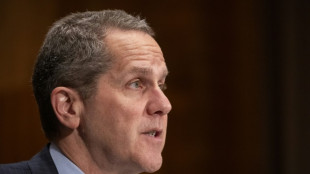
-
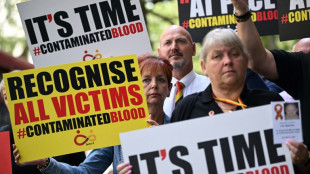 UK report finds cover-up of decades-long infected blood scandal
UK report finds cover-up of decades-long infected blood scandal
-
Trump trial resumes, closing arguments expected next week
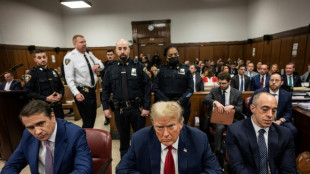
-
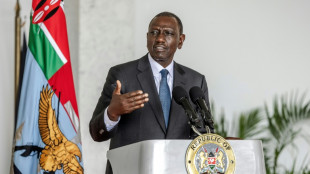 Ruto on first state visit by Kenyan leader to US in two decades
Ruto on first state visit by Kenyan leader to US in two decades
-
African players in Europe: Superb Kudus goal in vain as City take title

-
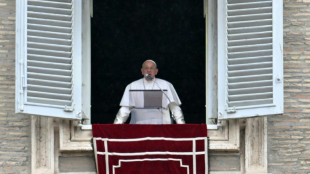 Pope to visit Belgium, Luxembourg in September
Pope to visit Belgium, Luxembourg in September
-
Gold hits high as Iran shock triggers haven support

-
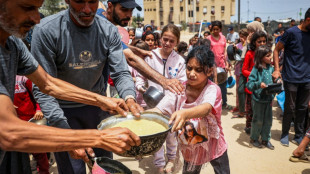 Strikes pound Gaza as Israel voices 'duty' to expand Rafah incursion
Strikes pound Gaza as Israel voices 'duty' to expand Rafah incursion
-
Russia tries playwright and director on terror charges
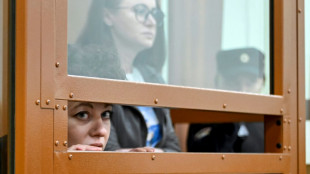
-
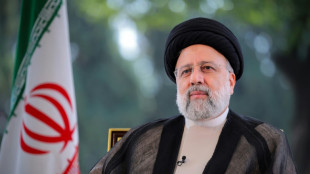 Iran mourns president Raisi's death in helicopter crash
Iran mourns president Raisi's death in helicopter crash
-
Attack on tourists rocks fledgling Afghanistan tourism sector
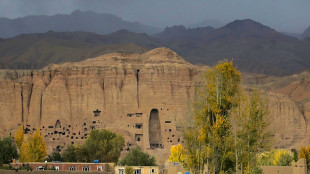
-
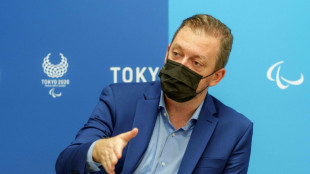 Paralympics should put disability back on global agenda, says IPC chief
Paralympics should put disability back on global agenda, says IPC chief
-
South Africa's top court strikes Zuma from ballot
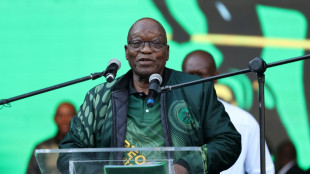

Pandemic agreement talks reaching end with deal elusive
Countries trying to strike a landmark global agreement on handling future pandemics began discussing how to keep the process alive as they ran out of time to seal a deal Friday.
With the chances fading of concluding an agreement by the end of the day, negotiations turned to what the next steps might be.
Shaken by the failures exposed by Covid-19 -- which killed millions, shredded economies and crippled health systems -- countries have spent two years drafting an international accord on pandemic prevention, preparedness and response.
Despite a common desire for binding commitments aimed at preventing another such disaster, big differences quickly emerged between country blocs on how to go about it.
And though progress has been made on bridging the differences, the clock was always against them.
The World Health Organization's 194 member states were meant to finish the process in March so the agreement could be formally adopted at their annual assembly, which starts on May 27.
This additional fortnight of talks was crammed in amid hopes of achieving a breakthrough. Countries did finally begin thrashing out text wording but could not get everything completed in time.
- Delegates head for the door -
The talks are being held behind closed doors at the WHO headquarters in Geneva.
WHO chief Tedros Adhanom Ghebreyesus was attending the talks in person, along with the UN health agency's emergencies director Michael Ryan.
WHO spokeswoman Margaret Harris told a media briefing Friday that the overtime round of talks "will end later today".
Fuelled by trolleys full of coffee, bananas, biscuits and sandwiches, negotiators have been pulling 12-hour days since April 29 to try and find a way through.
Several diplomats were already leaving the building with their suitcases on Friday as the talks neared the end.
"During the past two weeks, negotiators have held extensive discussions on multiple aspects of the proposed agreement, meeting often into the early hours of the morning," Harris said.
"Next steps on the way forward will... be discussed today and they will be announced later."
- More time needed -
Non-governmental organisations that were deemed to be relevant stakeholders can follow the process outside the room and are briefed daily by the talks' co-chairs.
"Member states are discussing what the next steps will be," Medicines Law and Policy director Ellen 't Hoen told reporters.
"It's fair to say there's progress made. If you look at the outline of the agreement, all the important themes are there.
"But there remain a significant number of thorny issues that simply need more time. No country as far as we can tell has tried to pull the plug."
James Love, the director of Knowledge Ecology International, added: "There is some room for negotiating right now. I don't think we're really there yet.
"I don't think it's the worst outcome if they take more time. I also don't think they're going to quit."
The main disputes revolve around access and equity: access to pathogens detected within countries and to pandemic-fighting products such as vaccines produced from that knowledge; and equitable distribution of not only counter-pandemic tests, treatments and jabs, but also the means to produce them.
Each of the draft agreement's 37 articles has been individually thrashed out, with country negotiators breaking off into working groups to try to figure out a consensus.
While general agreement has been found on some articles -- without formally signing them off -- the core aspects have proved the hardest to negotiate.
O.Bulka--BTB
